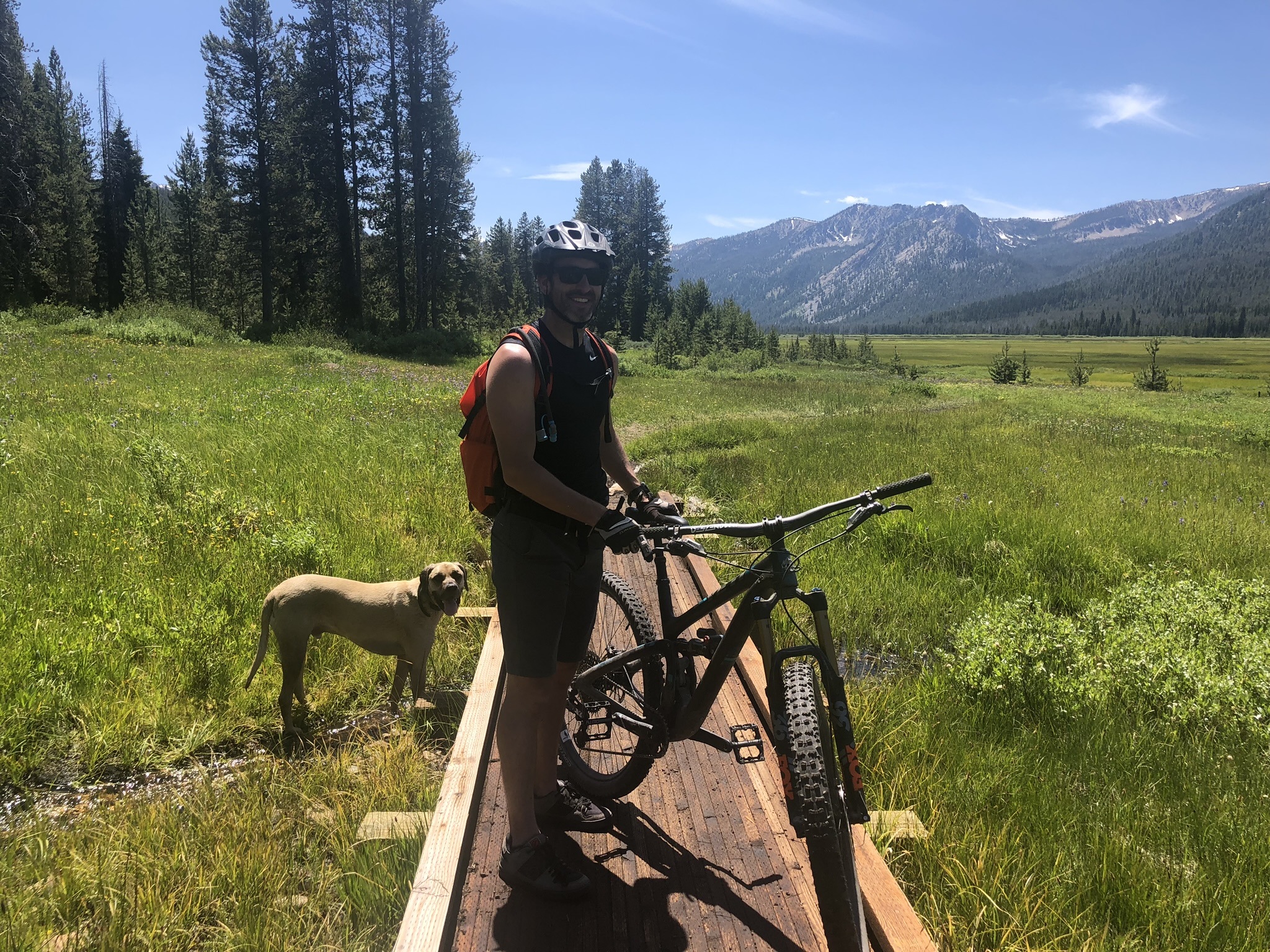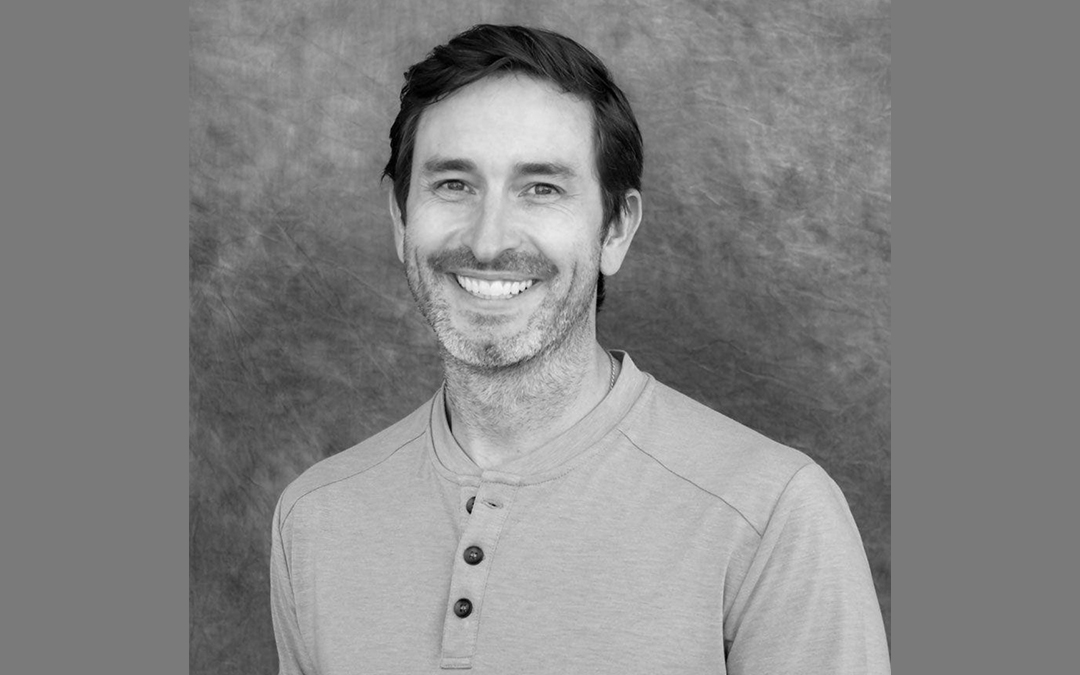Dr. Max Scholle, M.D.
West Elk Clinic, Delta Health
Dr. Max Scholle grew up on a German wheat farm near Oklahoma City. He fished every body of water and explored every square inch of land he could find as a boy. His family was not wealthy and didn’t have access to large acreage so Scholle learned to appreciate public lands. Growing up he loved hunting, fishing, Boy Scouts and venturing to Colorado for summer camps and backpacking trips. “I’ve loved Colorado ever since I was a boy, and just felt like I had to be a mountain man,” he reflects. Further explaining his draw to the west, “It was the wildness…the constant question of what’s over that next ridge? I always wanted to see more! I still do, in fact.”
Scholle’s extended Oklahoma family all live within a 20-mile radius and “no one really thinks of leaving.” But he did leave, first majoring in fisheries and wildlife before switching to a medical path leading to the Caribbean, New York, and Boston. “It was a broadening experience and helped shape me,” he says. Scholle began his career in surgery, finding the east coast “interesting but not my style.” Scholle switched to family practice, falling in love with rural medicine and practiced for a time in Salmon, Idaho before finally landing in Hotchkiss, Colorado. “It’s just what I was looking for,” he explains, “a place you’ve never heard of with an abundance of public land all around.”
Scholle has been in Hotchkiss since November 2020 at Delta Health’s West Elk Clinic. He also does rounds with newborns and pediatrics in the hospital. He acknowledges the need for medical permanence on the Western Slope, noting the high turnover amongst the profession in recent years, a trend in medicine he hopes to change. He says local residents seem happy to have a doctor who sought out rural medicine and plans to stay. Reminiscent of the days of the small-town doc who watched entire families grow up in the same community, Scholle feels Hotchkiss has become like home already, and hopes to contribute longevity.
“I feel like I got lucky with the group and the partners here. We are all on the same page with the same standard of medicine. It feels good because you can go to some clinics where people practice medicine very differently. But here I feel like I fit in very well,” he states. Scholle feels his partners are all good at following the standards and guidelines of evidence-based medicine, remarking that “in a bigger city you farm a lot of things out, but here those things aren’t as readily available so we’ve got to be more hands-on and it makes us more well-rounded, more experienced doctors.”

When it comes to relating to patients, Scholle jokes that, “Old rancher, farmer men are my specialty. I can relate to them coming from a farming and ranching background. My dad was a railroader. Some of these guys work in a mine. You know, I think some of these folks feel that doctors can be elitists who don’t understand, but I have a similar background. Making that connection is really good. I think I have surprised some of them.” He goes on to explain that he values taking time to listen, building relationships and earning trust. “Half of those visits, they’re interviewing me. They’re asking, ‘Am I going to trust what this guy says or not?’”
Scholle laughs at how many times local wives are surprised their husbands keep coming back to see him. It makes better sense when he humorously explains how “part of our residency program criteria to get into rural medicine was: You have to know what a PTO on a tractor is.”
A brief conversation with the humble doctor illuminates why he’s perfectly suited for rural, family medicine. In addition to his humor, he possesses intelligence, problem-solving and strong relational skills. “I’ll sometimes tell med students, ‘I’m not the smartest doctor in the room, but I have a good way of relating to the patient, and I can understand where they’re coming from, which helps me figure out what’s going on with them. That can be more beneficial than knowing a lot of trivial facts.’”
When asked what keeps him motived in a high burnout profession with long on-call hours and high stress, he admits, “It does wear on you. There’s a lot of mistrust in the medical world. And things are getting so much more specialized, it’s hard to keep up. There’s a certain level of burnout with the amount of paper work. But at the end of the day, after working as a team—it’s that one small win where you can see somebody and think, ‘Yes! I fixed that!’ It’s the little wins.”
Both dog lovers, Scholle and his girlfriend, take their five-year-old Black Mouth Cur when they go trail running and mountain biking. The pair enjoys camping, backpacking, rafting, skiing and recently bought a boat. “My house is like a Bob Ward’s Store,” Scholle laughs. He’s already hosted his young adult niece and nephew in Colorado. “On this side of the state, you’re close to Moab, with Crested Butte just over the hill, Telluride just down the road. It’s a killer spot.”
It seems Hotchkiss has scored a win-win. Scholle comments sincerely about practicing medicine in a place he loves to live in: “I can’t imagine doing anything else.”
Dr. Max Scholle is accepting new patients at West Elk Clinic located in Hotchkiss, Colorado. To schedule an appointment with his office, call 970.872.1400.

